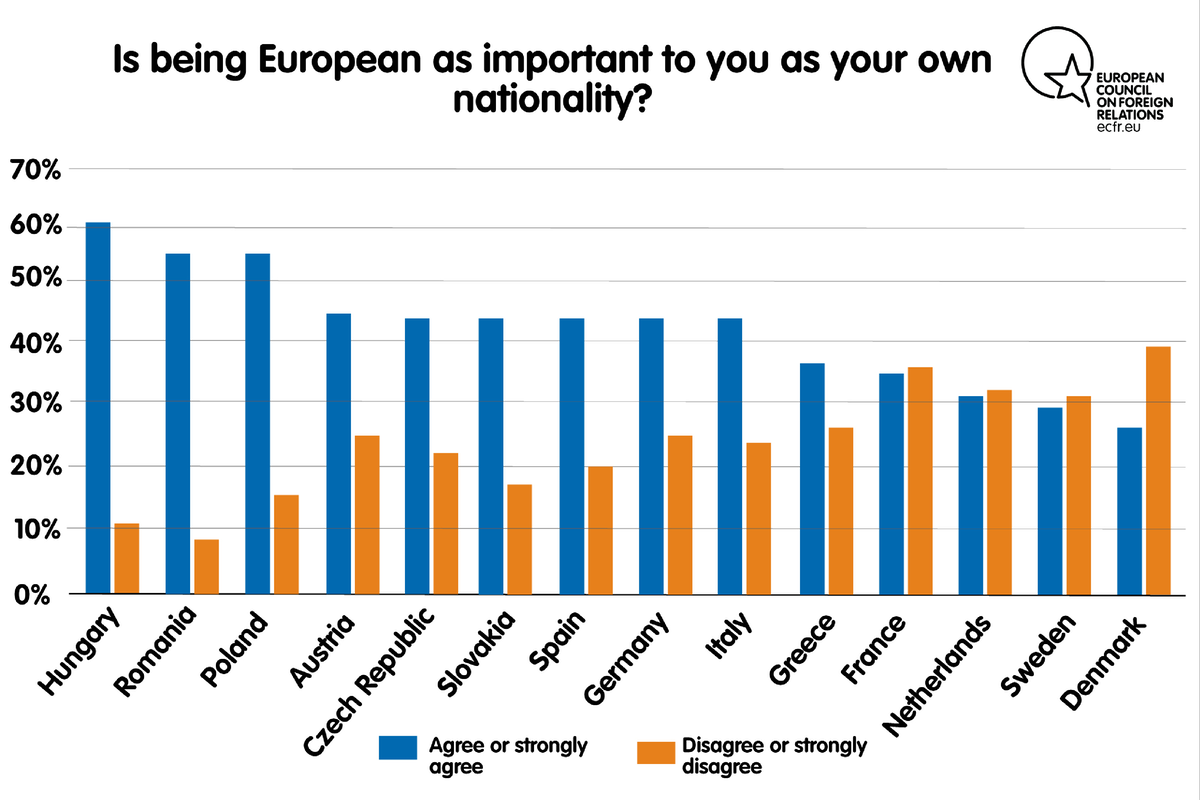EU 'democracy' does not function as a nation state's democracy does.
Well, that's because it isn't a nation and was never intended to function like a nation state. It is a supranational, political-economic union of nations. And also because the UK has repeatedly used its veto and prior influence to stymy closer integration in areas where it's needed (that problem, at least, has now been removed).
The UK isn't a nation-state either (its comprised of four nations) but it adopted a more unitary, centralised model of government than the EU. Is that really better? I think its better having a much looser system of exclusive, shared and national competences operating according to the principle of subsidiarity.
EU is somewhere between confederation and federation, a sui generis “
supranational union”.
Interestingly, Canada’s internal market for goods and services is less integrated than that of the EU, according to a comparative study by Alicia Hinarejos, of the University of Cambridge:
It is somewhat counterintuitive for EU lawyers that a full-fledged state may have an internal market that is less integrated than that of the EU; and yet that is the case in Canada…
The current EU emerges as a quasi-federal pact that reaches into almost all areas of national legislation and that has spawned an autonomous legal system with (at least from the point of view of EU law) supremacy over national law and a judicial structure to enforce it. The four fundamental freedoms (free movement of goods, workers, services and capital) are the cornerstone of the EU single market.
The common market rules mean the empowerment of individuals against states and the creation of a new sort of post-state constitutional law that still defines (and, for some, legitimizes) the EU today.
It is technically easier for Quebec to extricate itself from the Canadian union than it is for Britain to extricate itself from the European one.
What the EU really needs is a better banking union with a common fiscal policy. In terms of identity, the vast majority of EU citizens identify as European and generally rate Brussels better for trust than their own national governments i.e.
Support for EU membership above 80% in most member states amid Brexit mess
What Europeans really want: Five myths debunked | European Council on Foreign Relations
The ECFR/YouGov poll shows that the core divide in EU countries will not be one that pits supporters of the EU against nationalists. Instead, for the majority of citizens, this is not a choice they feel the need to make: for them, being European is as important as their national identity. Only 25 percent of respondents disagreed with the statement that their European identity is as important to them as their national identity.
Nationalist parties have learned this lesson as well. In the last few months, most of them have tried to reposition themselves on Europe and abandoned their previously expressed desire to take their countries out of the euro. This is not just true of the Rassemblement National but also of the League and the Five Star Movement in Italy. Their goal is not to appear anti-European but rather to offer a refoundation of Europe.
Migration is not a defining issue. The survey results show that a majority of people in every single country polled do not regard it as one of the top two issues facing their country.
Folks, especially in England and North America, really exaggerate the extent of euroscepticism throughout most of continental Europe.
Britain has always been an outlier (sans Scotland today, which has Europhilia typical of the continental norm and will fit in nicely one day as a Denmark/Finland-sized member state).
If the EU is to be compared to any type of state (it does have some important features of statehood), the best term to use would be Christopher Coker's "
civilisation state" (also used to describe China, India and Russia): "
which claims to represent not just a historic territory or a particular language or ethnic-group, but a distinctive civilisation":
Civilization state - Wikipedia
India, for comparison, is made up of thousands of nationalities/ethnic groups and languages spanning the Indo-European, Dravidian, Sino-Tibetan and Austroasiatic families (according to its census, India has 122 major languages and 1599 other languages). It is far more internally diverse than the European Union: 94% of the languages of EU member states are Indo-European and break down simply into Romance, Germanic and Slavic. Maltese is the only official EU language that is actually from the Semitic family, while Finnish, Hungarian and Estonian are Uralic.
The ideal of the "nation-state", coming from a multi-national polity like the UK, has always mystified me - as its rarely a reality in practice, with most countries being ethno-linguistically heterogeneous and reliant upon some degree of civic nationalism (i.e. even 'wee' Scotland is divided between traditionally Gaelic-speaking highlands and Scots/English speaking lowlands, so isn't ethno-linguistically homogeneous).

